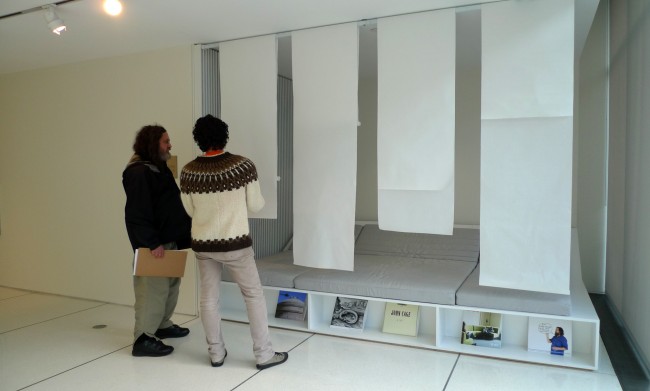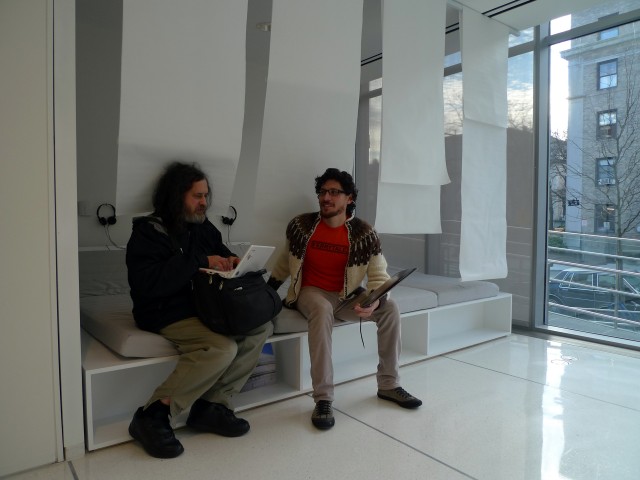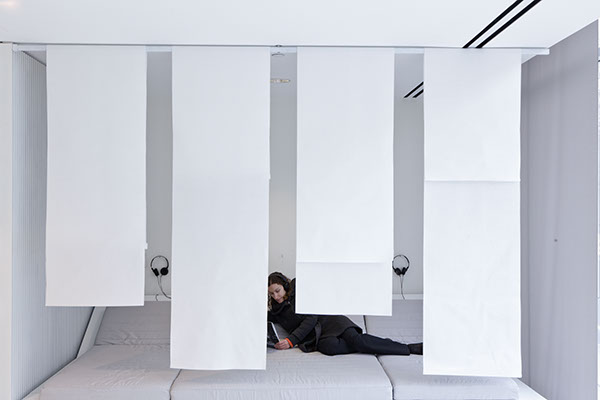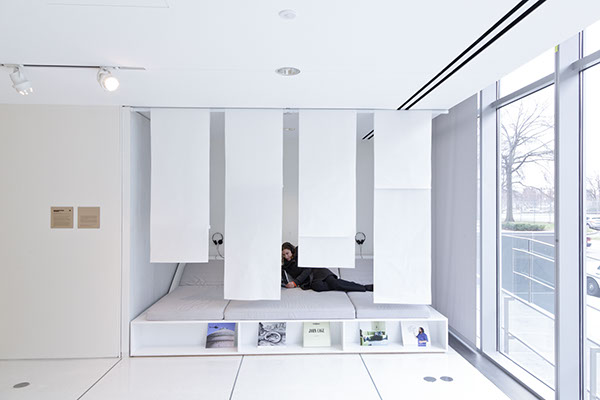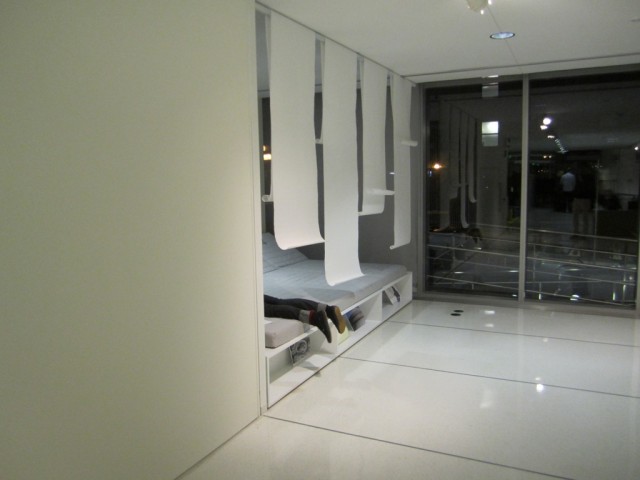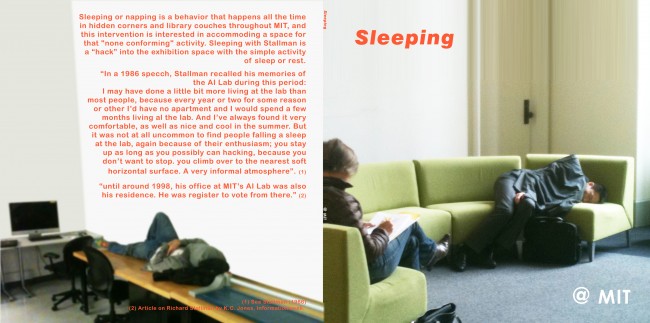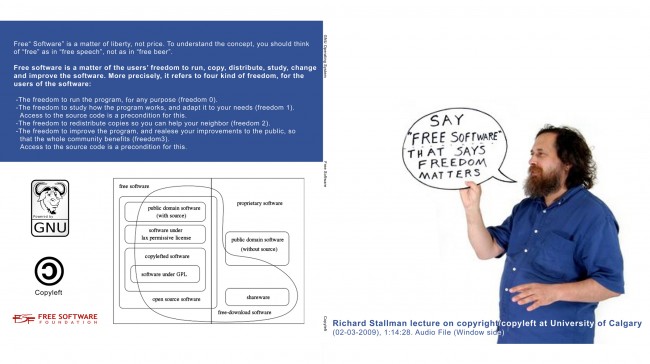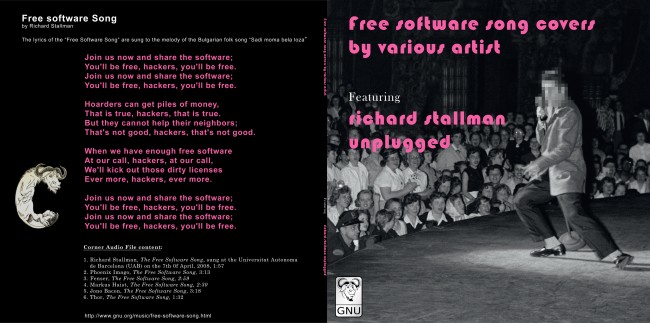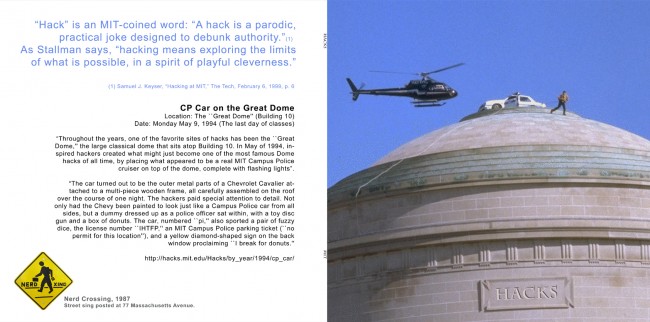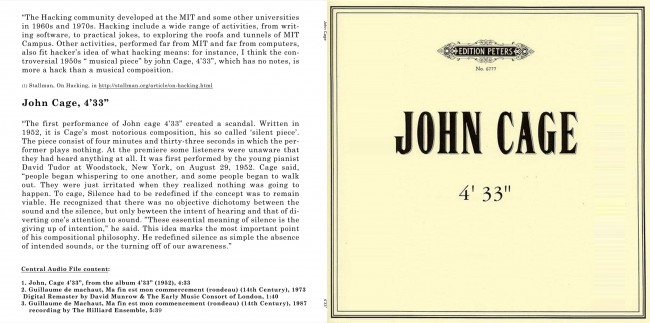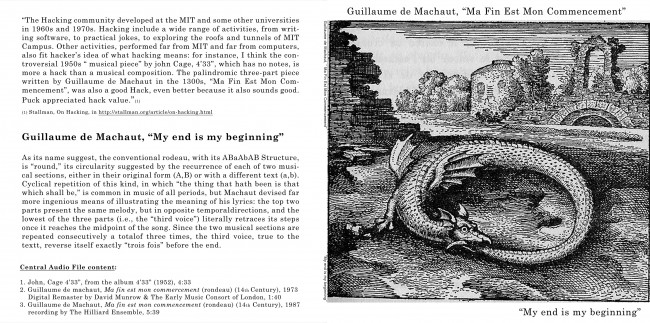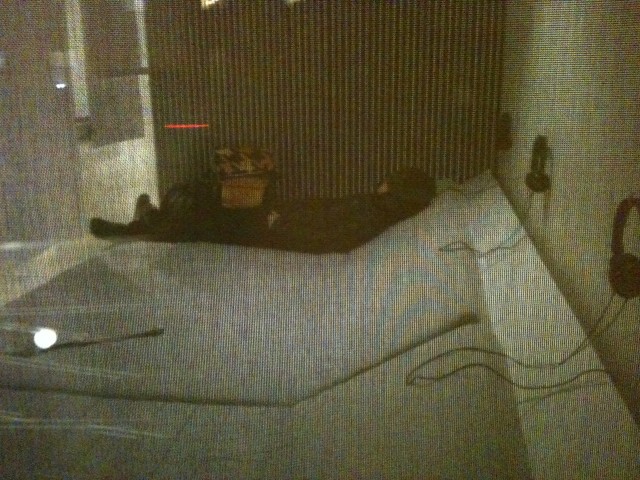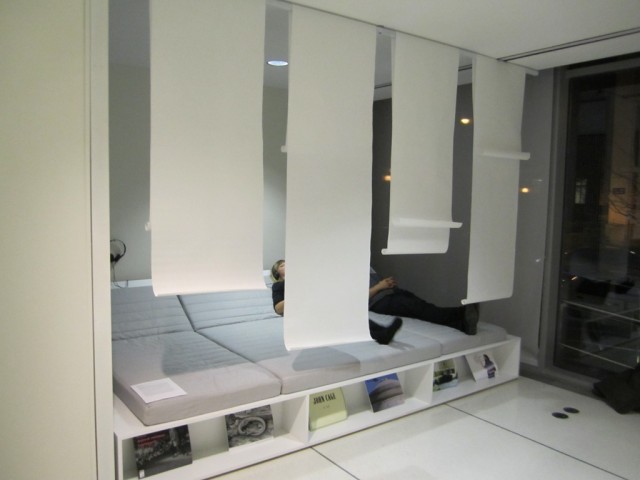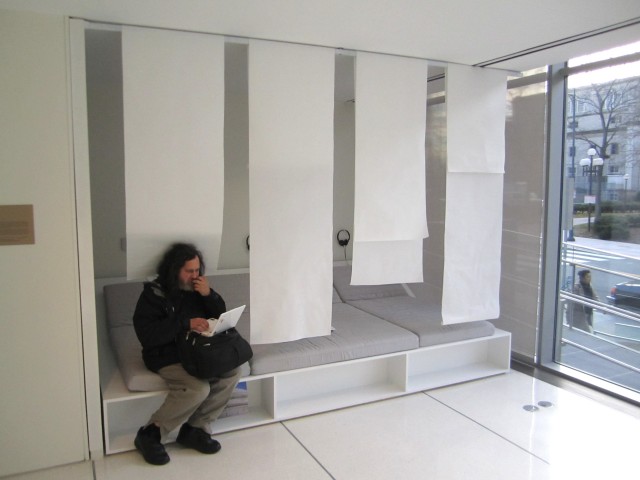On Tuesday Dec 20 2011 Richard Stallman visited Disobedience Archive exhibition.
R.Stallman visit
Sleeping with Stallman – Digital Disobedience Project
FreeSWSong New track recomended by Richard Stallman
Giacomo Castagnola
Sleeping with Stallman – Digital Disobedience Project
2011
Mattress, wood, curtains, MP3 players, headphones, LP envelopes, assorted reading materials downloaded from the Internet. Courtesy of the artist.
This project is made possible thanks to a CAMIT Grant and to a Director’s Grant, MIT
“Civil disobedience thus conceived must be viewed as an exercise in public moral education, as a tactic to achieve law reform. Hence the disobedience is properly called ‘civil’ because it is part of the civic life of the society. But no such appeal to the public conscience can be made unless the illegal conduct is done openly, in the public forum, as a political act.”[i]
Hugo Adam Bedau
Sleeping with Stallman - Digital Disobedience Project began as research for cases of civic disobedience in the Greater Boston area and at the MIT campus. The project started as an investigation into the control imposed on informal settlement at the tent city at Dewey Square in Occupy Boston—a peaceful protest that uses dwelling as the main tactic. The Occupy Boston settlement uses land occupation, inhabitation, and sleeping in public space as a political tactic to disrupt the existing economic and political system. The ideas generated by “sleeping in public” as a form of social critique led me to an article on Richard Stallman by K.C. Jones in InformationWeek, that notes: “until around 1998, his office at MIT’s AI Lab was also his residence. He was registered to vote from there.” In other words, Stallman was sleeping on campus.
In 1984, Richard Stallman launched the GNU Project, to develop, the words of its founder, “a sufficient body of free software […] to get along without any software that is not free.”[ii] GNU is a complete, Unix-Like operating system created through mass collaboration and available to all, in order to make possible for anyone to use a computer with complete freedom. Stallman formulated the GNU Project as an act of civic digital disobedience in reaction to the increasing control of MIT’s software’s sources which were developed as private capital of knowledge for corporate profits. He proposed GNU and the free software movement as an act of political digital activism and a critique of the capitalization of culture and knowledge within universities in the United States. Stallman’s foundational principle is that “free software” is not “free” because it does not have a price, but rather, it is free in the sense of liberty, as a concept aligned to free speech and liberty “free software is a matter of the users’ freedom to run, copy, distribute, study, change and improve the software.”[iii]
Sleeping is then a powerful form of resistance, paralleling what the Italian Autonomism and Operaismo group from the 1970’s define as a “subtraction of time—an activity invested in the refusal to work, and of high performance and production. Sleeping is a behavior that happens all the time in hidden corners and library couches throughout MIT, and I am interested in accommodating a space for that “non conforming” activity in order not to represent civic disobedience only, but to actually embody it within the project. Sleeping with Stallman is a “hack” into the exhibition space with the simple activity of sleep or rest. “Hack” is another MIT-coined word: “A hack is a parodic, practical joke designed to debunk authority.”[iv] As Stallman says, “hacking means exploring the limits of what is possible, in a spirit of playful cleverness.”[v]
Sleeping with Stallman consists of a soft platform that will host three sound compilations and three reading sections. Section 1 will have different versions of the free software songs by Stallman with covers by various artists plus text. Section 2 will have a piece by John Cage (4’33, a silence piece) and the palindromic three-part piece written by Guillaume de Machaut in the 1300s, Ma Fin Est Mon Commencement, both consider by Stallman to be hacks; this will also have a text component on the legal history of “Sleeping at MIT,” which is itself also a “hack.” The 3rd compilation will have texts and an audio lecture by Richard Stallman talking about the free software movement, copyright/copyleft, software monopoly, and other topics related to the capitalization of knowledge in the digital age.
[i] Hugo Adam Bedau, “Introduction,” Civil Disobedience in Focus, London and New York: Routledge, 1991, p.7.
[ii] The GNU Manifesto”. Free Software Foundation. http://www.gnu.org/gnu/manifesto.html
[iii] Ibid., http://www.gnu.org/philosophy/philosophy.html
[iv] Samuel J. Keyser, “Hacking at MIT,” The Tech, February 6, 1999, p. 6.
[v] Stallman, On Hacking, in http://stallman.org/articles/on-hacking.html
